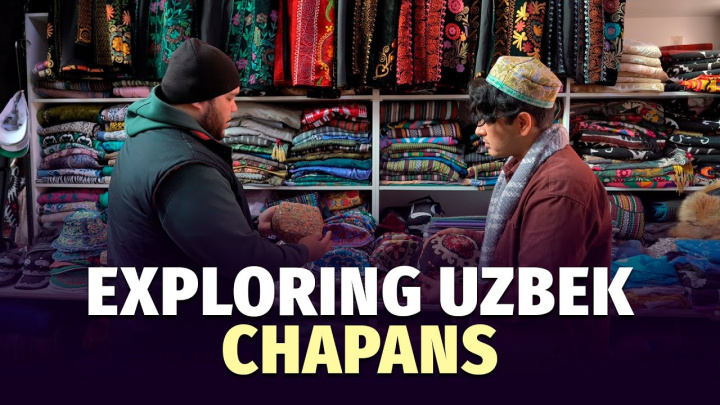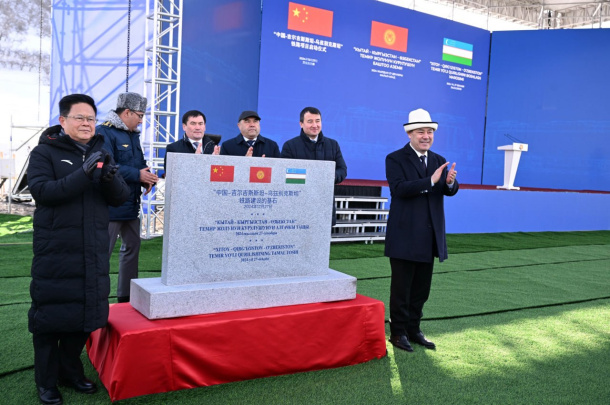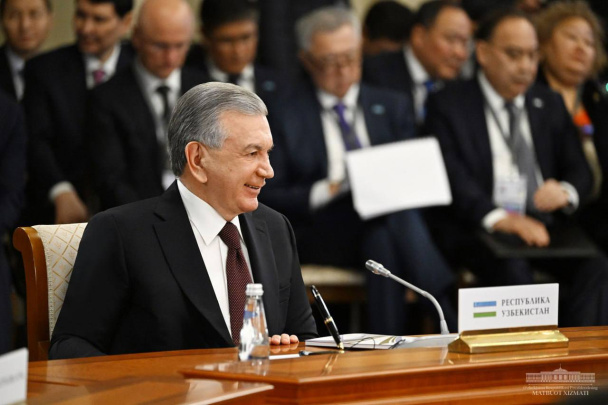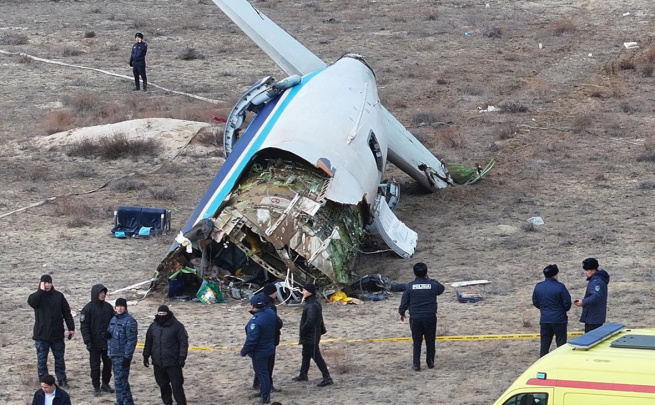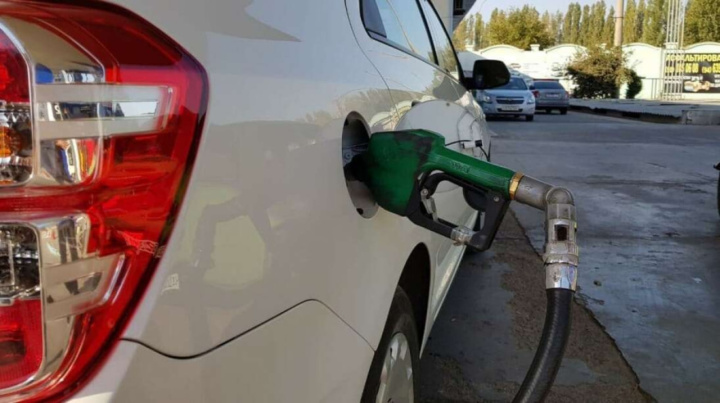On September 29, Kun.uz had an exclusive interview with the US Ambassador to Uzbekistan Jonathan Henick.
During the interview, Ambassador Henick commented on the recent C5+1 summit in New York, President Biden’s possible visit to Central Asia, investment opportunities of Uzbekistan, repealing of the Jackson-Vanik amendment, US-China relations, unfreezing of Afghanistan’s assets in Western banks, and visa issues for Uzbek citizens. He warned illegal immigrants of possible dangers on the route and discouraged people from traveling to the USA illegally.
Mr. Ambassador, we are honored to have you here on the program, thank you very much for coming over for the interview.
My pleasure to be here.
I would like to start our talk by focusing on President Mirziyoyev’s recent visit to the USA. What can you say about it? How productive was the visit?
I think the president had a very productive visit. He spent several days in New York. I’m not aware of his full schedule but I saw on social media that he had a number of productive meetings with US private sector companies and participated in the United Nations General Assembly, delivering an address there. He also had a meeting with President Biden in the C5+1 format together with other presidents of Central Asia.
During the C5+1 summit you just mentioned, President Biden said that the US is increasing the amount of security funding to Central Asia. What are the reasons for that? Does the US still see possible threats in the region?
President Biden and Secretary Blinken have been listening very closely to our partners here in Central Asia and we know that the countries of the region continue to have concerns about security and stability, particularly, threats coming from Afghanistan. So, as we continue to work with each of the countries in the region, we determined that it makes sense to continue to invest additional US resources on security issues. These include issues on border security and issues that strengthen our ability to counter terrorism together.
As part of his speech, President Biden also said he could possibly visit one of the Central Asian countries. How likely is this to happen? And if the visit takes place, which country, do you think, he will be coming to?
It was a surprise to me to hear President Biden talk about a possible visit to Central Asia. As you know, no US president has ever visited the region so far. I don’t know what’s on President Biden’s mind. If he says it’s possible, then, of course, it’s possible but I don’t know any specifics of his plan to visit Central Asia or which country he might come to.
Could you, please, comment on the results of the C5+1 meeting? In which areas of cooperation did the parties agree to strengthen relations?
Well, first, as you know, the C5+1 diplomatic platform between the countries of Central Asia and the United States started in 2015 in Samarkand and we’ve had regular meetings in the C5+1 format since then. But I think it’s fair to say that since the Biden administration began there has been an intensification of activity in the C5+1 format. We’ve had five separate ministerial-level meetings during the Biden administration and now we’ve seen the first ever meeting at the presidential level. So, first and foremost, I think it is fair to say that this represents an increased commitment and the strengthening of the platform and the relationship between the United States and the countries of Central Asia.
In terms of the actual results of this particular meeting, it is important to look at this in the context of how the platforms have been developing. When the platform was first established back in 2015, there was mostly just an opportunity for us to have a dialogue with the countries of the region. Shortly afterward, we decided that we needed to add some content, some substance. There needed to be more activity to strengthen the cooperation in the areas that we had identified as important and we established three working groups under the C5+1 format. The first working group deals with the economy, the second – with energy and the environment, and the third – with security issues. These groups have been working for years on a wide range of programs in all of these areas.
Just a couple of years ago, we established, for the first time, a secretariat of the C5+1. The Secretariat usually meets virtually on a regular basis with representatives from all six countries, keeping track of progress on various activities and identifying new priorities. So, this work of the working group and the Secretariat has been ongoing, and during the meeting in New York, they discussed a range of issues, including, as you mentioned, security issues, and President Biden announced additional resources for security purposes.
They considered energy security, the need for clean energy, the advantages of connecting the energy networks of the region, and, eventually, establishing connections with the energy systems of other regions. There was also a discussion of economic issues, the need to improve the business environment in these countries in order to attract more foreign investment, including US investment, to the region. In that regard, President Biden announced the creation of the C5+1 private sector to continue to work on the business environment and attract investment to the region.
In addition, in the economic area, they discussed the need to strengthen the connectivity between Central Asia and world markets. This is an issue that we have been working on for a number of years now, but the need to particularly strengthen the transit and transportation corridors, including over the Caspian and to Europe, is important. So, we’ve got a number of programs in that area as well.
President Biden also announced in New York that there will be a C5+1 meeting here in Uzbekistan, probably, next month. That will be hosted by USAID administrator Samantha Power, together with participation from other Central Asian countries. One of the topics that the meeting will focus on will be this transportation corridor.
They also talked about human rights issues. President Biden noted the need to continue to strengthen civil society and the need to work on women’s empowerment throughout the region. He also spoke about how useful it would be to introduce disability and inclusion as an area where C5+1 could do additional work.
Another result that came out of the meeting in New York was something President Biden called “critical minerals dialogue”. As we look at the future economic development in all the countries, it is clear that we all need secure access to critical minerals. As a mineral-rich region, Central Asia holds opportunities and the United States wants to work with the region, ready to provide US and Western technology to help discover and mine these minerals, in order to make sure that they benefit the people of Central Asia as well as the countries like the United States and the global market.
These are all areas that they identified in New York and will be working on in the months to come.
You’ve just spoken about investment opportunities of Central Asian countries, in particular Uzbekistan. Could you please clarify what sectors of the economy are of interest to the United States to invest more in Uzbekistan?
Well, Uzbekistan has the most diversified economy of all the Central Asian countries and so there are a number of economic sectors that are very attractive to Western, particularly, to the US investment. In recent months, we’ve seen a major investment by a US energy company called Air Products. They’ve invested almost $2 billion in Uzbekistan already and if I’m not mistaken, President Mirziyoyev met with the Chairman of that company in New York and they announced plans for even more investment in the energy sector.
We have investments in the agricultural sector, including in the cotton sector, as well as in construction and mining. There are such companies as Caterpillar and Case New Holland, which produce some of the equipment that’s critical to being able to mine minerals and resources.
We’ve got companies interested in the IT sector. There is a major US company called EPAM, which has been increasing its presence here. And I should note that Uzbekistan has been increasing the export of its IT services to the United States. So, it is really hard to identify any sector where there aren’t opportunities and where there isn’t increasing interest from US companies.
Earlier in September US Senators Chris Murphy and Todd Young called for repealing the Jackson-Vanik amendment for Uzbekistan, Kazakhstan, and Tajikistan and granting them permanent normal trade relations status. Will the amendment be revoked any time soon?
The Biden administration actually believes that the time is right to repeal the Jackson-Vanik amendment. We believe that Uzbekistan, for many years now, has been complying with the requirements of the Jackson-Vanik amendment, which focuses mostly on the freedom of movement, and the ability of citizens of Uzbekistan to travel wherever they might want to go.
Unfortunately, at this point, the action lies in the US Congress because this is a law and it can only be repealed by Congress. I am pleased to see there are some draft proposals in Congress to move this issue forward but I can’t predict how and when Congress might be able to act on those proposals.
You have just mentioned the freedom of movement of Uzbek citizens in the United States. According to the information I have, most of the visa applications of Uzbeks are rejected by the embassy. What are the reasons for that? Can the situation be changed in any way?
This year we have actually received and interviewed a record number of applicants, citizens of Uzbekistan interested in traveling to the United States and we have issued a record number of visas. So, I think your information is incorrect. We are seeing more Uzbeks traveling to the US than ever before.
It is true that some applicants do not receive a visa, meaning their visa applications are unsuccessful. That’s due to the requirements Congress imposes on all embassies around the world, not only on the embassy here, to make sure that people who are applying to travel to the United States are, in fact, legitimate travelers, who are visiting the US for legal purposes.
We see many Uzbeks traveling to the United States for tourism, many traveling for business, many students traveling for education, and even some Uzbeks traveling on work visas.
However, as you know, there are many Uzbek citizens traveling illegally to the US through very dangerous routes, via Central America, crossing overland the border between Mexico and the United States. I would really discourage them from considering this. It is very dangerous. There are smugglers, who are taking advantage of them and charging high fees, making them promises that they cannot guarantee. There are risks on the route and in the last few months, there has been a real crack-down in terms of making this route a viable one. So, on every step along the way in different countries on the way to the United States, Uzbek citizens are being turned away. They might have sold their houses or spent a lot of money, sadly, for no reason whatsoever.
Many are being turned away at the US border, many are being detained if they enter the United States. Previously, they might have been released but now they are going to be detained and potentially be deported. So, I would say that circumstances are changing and I would really discourage people from traveling illegally to the United States.
As I said earlier, there are legal means to travel to the US. In addition to the ones I mentioned, we also have a Green Card lottery, and around the world, we give 55 thousand Green Cards to people applying from countries like Uzbekistan. In fact, Uzbekistan has been one of the top countries in terms of applying for the Green Card lottery.
People who choose illegal routes to the United States should know that it might make them ineligible, meaning they may face a permanent ban, never again being able to apply for the Green Card lottery or be able to apply for legal visas to the United States. So, that’s another reason why I would discourage Uzbek people from trying to travel to the US illegally.
Some of the Green Card lottery winners this year missed their chances as they were not invited to an interview at the embassy. The embassy said they ran out of slots. What will happen to them now?
Right. The way that it works is that we have about 55 thousand slots for the whole world. It is a lottery and anybody can apply for it, there is no charge. If you “win” the lottery, that means that you pass to the next stage where you have to submit documents. Once you submit those documents, then you will be called for an interview at the embassy. All of this depends on those 55 thousand slots being available and because we don’t want these slots to go unused more people win the lottery than the number of slots available.
In some years, everybody who won the lottery in Uzbekistan was able to get an interview, and in some years, we used up all the slots around the world before everybody was able to get an interview. What that means is if you were unable to get an interview, unfortunately, the opportunity for that year has passed and you can reenter the lottery next year. It is a long process and there is no guarantee even if your name is selected that you will be able to successfully submit your documents and go through the interview.
Even when you get an interview at the US Embassy, there is no guarantee that you will get the Green Card lottery as well; you have to ensure that the application was filled out correctly and legitimately and that there was no incorrect information provided. I will give you an example, there were cases when people submitted multiple applications and changed the spelling of their name on the form in order to increase their chances of winning the lottery. If we find out that’s the case, then they will be disqualified when they get to the interview stage.
Some Green Card winners said that the main reason for not being able to get the interview was the slots being taken by Russian immigrants who came to Uzbekistan because of the current situation in their country. How true is that? Did it really affect the process?
Absolutely not. There is a center in the United States that tells the embassy here when they can interview a particular applicant. We had the capacity; we could have arranged more interviews but we ran out of the 55 thousand slots. So, it has nothing to do with Russian citizens coming to the US Embassy in Tashkent.
The US Embassy is paying particular attention to improving English language teaching in Uzbekistan. Recently, 25 tutors came from the United States for ten months to help local teachers in teaching English. What outcomes are expected from this and other relevant projects?
You are right. We have made major investments in supporting the teaching of English here in Uzbekistan. It was actually at the request of President Mirziyoyev, who announced a number of years ago a big initiative to increase English teaching in schools in Uzbekistan. So, we have been responsive to this. One of the projects we’ve had has been the English language curriculum that’s taught in schools. Working together with the Ministry of Education we updated the curriculum and disseminated new textbooks and teacher guides to almost every school in Uzbekistan.
In addition, we’ve been working to provide more training to English language teachers at schools. So, again working together with the ministry, we have, over the last couple of years, provided training to 15 thousand English teachers at public schools throughout Uzbekistan.
The project you have just mentioned is one of the initiatives that has been going on for a number of years as well. It is very important not just to have good materials and good English teachers, but it is also important to have the opportunity to speak directly with native speakers. So, we started to recruit English language trainers from the United States to come and work in schools and mostly in universities in your country. We think it is important that they not just be here in Tashkent; we send them to every region in Uzbekistan. We’ve been working with universities throughout the country to place those English teachers and create conditions for them to work together with faculty members, English professors, as well as with students in these universities.
In terms of results, we get very positive feedback from the universities, from the professors, and from students. They think it is a terrific opportunity to be able to speak, to have direct interaction with native English speakers and they have asked us to send more English teachers.
Unfortunately, 25 is not a huge number. We hope to be able to bring more teachers, and we hope, eventually, to be able to bring the US Peace Corps back to Uzbekistan, which will be an opportunity to have even more English teachers as well.
Uzbekistan supports the economic recovery of Afghanistan and calls for the unfreezing of its assets in Western banks for the sake of Afghan people who are suffering from poverty. What is the USA’s response to the Afghan issue and Uzbekistan’s policy toward this country?
I think the United States government and the government of Uzbekistan have a very similar policy towards Afghanistan. We both want to see the Afghan economy healthy; we want to avoid any kind of humanitarian disaster that adversely affects the Afghan people and we want to see long-term security and stability in Afghanistan. Because I think it is important to our collective security and it is important to the economic development of the entire region.
The problem is the regime now in Kabul has ignored its international obligations, has taken measures to restrict the rights of girls and women, has prevented them from being able to attend school and work, and generally has been unwilling to cooperate with the international community. These are conditions to move forward with unfreezing the assets. Until then, the United States continues to support the humanitarian needs in Afghanistan by providing critical food assistance and other aid through the United Nations and other agencies. We also continue to work with the government of Uzbekistan to encourage through dialogue the regime in Afghanistan to take measures that will enable all of us to try and improve the economic situation and security in the region.
What commitments do you expect from the current government of Afghanistan to be admitted internationally?
I’m not an expert, I don’t know all of the specific commitments that they undertook when they signed an agreement with the previous US administration, but as an observer, I’ve seen that instead of moving in the right direction, the regime in Kabul is moving in the wrong direction, including in the ways that I’ve just mentioned in terms of closing down schools for girls and eliminating employment opportunities for women. Those are just two examples of policies that we would like to see reversed.
The escalation of tension between the United States and China is having an impact on the economies of Central Asian countries, including Uzbekistan. Could you please tell us where this is going and what should we expect in the future?
Right. President Biden discussed it with the presidents of Central Asian countries in New York. The region is suffering from its difficult geography right now and some of the global events happening in the world, not just tensions between the United States and China, but also Russia’s unprovoked aggression in Ukraine and the impact that’s having on the economy of the region. So, we are definitely trying to work with Uzbekistan and other countries in Central Asia to mitigate those economic impacts.
As for the US relationship with China, there are ongoing efforts by the United States to have a dialogue with the People’s Republic of China to resolve some of the issues that have led to tensions in the past.
In terms of economic relationships, I know Uzbekistan enjoys very strong economic ties with China and so do we. So, I would hope that these tensions won’t have an impact on those relationships.
How would you assess current human rights reforms in Uzbekistan?
I think there has been tremendous progress here in Uzbekistan in the last several years, particularly, since President Mirziyoyev has come to office. I wonder if we would be sitting here having this kind of interview six or seven years ago. So, clearly, there have been real improvements in terms of the freedom of media, and freedom of expression. We have seen tremendous improvements in other human rights areas as well. For example, the elimination of child labor and forced labor, particularly in the cotton harvest. We have seen tremendous progress in terms of the elimination of torture and ensuring the freedom of religion.
However, I think there is still more that could be done and, in fact, it is fair to say we’ve seen some steps backward, unfortunately, with regard, particularly, to the freedom of media in the last year or so. I don’t know why that’s the case. President Mirziyoyev has been very clear in his public statements about his support for the freedom of media and the fundamental role it plays in democracy, including by exposing corruption.
Despite the president’s statements, we are still seeing some pressure against journalists. Sometimes that pressure is invisible. It manifests itself in the form of self-censorship – a journalist chooses not to write about a topic that is too sensitive. There were some court cases against bloggers and journalists but I am not going to talk about the specific details of each of these court cases or defend the individuals involved. Nonetheless, these kinds of prosecutions send a signal to other journalists that they can't report freely on what they are saying.
I’d like to see more space for journalists to be able to work freely here in Uzbekistan.
Recently the embassy posted a video in which you were traveling to work by metro. It was a really positive and welcoming initiative. How often do you use public transport and how would you assess Uzbekistan’s transport network?
I don’t use the public transportation system as often as I would like. The metro is not very close to my house, nor is it close to the US Embassy. So, I would have to walk. But when the weather is nice, I do like to do it from time to time.
The metro system here is beautiful. There are some individual metro stations that are works of art, which could be museums, not just metro stations. I am not very familiar with the bus system. I understand the bus system is also fairly effective, although we are seeing increasing traffic here in Tashkent. As a person who has spent most of his life living in cities, I believe it is important to support public transportation because it reduces the burden on the roads, it reduces the impact on air quality. So, whenever possible I like to use public transportation. I do have, however, a very busy schedule, and whether it is for security reasons or reasons of scheduling, sometimes, I confess, I do take a car.

